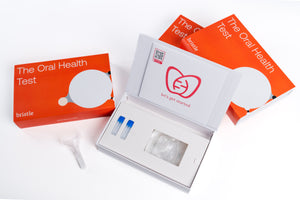Ozempic, scientifically known as semaglutide, has emerged as a beacon of hope for countless individuals battling type 2 diabetes. With its efficacy in lowering blood sugar levels and promoting weight loss, Ozempic has become a game-changer in the world of diabetes management. It has also enjoyed popularity as a weight loss drug, so much so that patients using it to treat diabetes have experienced medication shortages.
As anyone who’s taken medication, whether over-the-counter or prescription knows, all medications come with the potential for side effects. Package inserts on over-the-counter medications and printouts that accompany prescriptions include a laundry list of issues ranging from benign concerns and mild discomfort to significant and even life-threatening issues. While Ozempic boasts an impressive safety profile, it's essential to acknowledge that, like any medication, it too has potential side effects.
Amidst the myriad of benefits Ozempic brings to the table, some users have reported some odd and unexpected side effects. Everything from rotten egg burps, halitosis (bad breath), gum inflammation, dry mouth, and even changes to a patient’s sense of taste have been reported. Of course, it's important to understand that these side effects are not universal, and their occurrence and intensity vary from person to person.
More research is needed to understand the link between Ozempic and these oral health side effects but there are a few theories to unpack. To begin to grasp why Ozempic can cause bad breath, we need to discuss the medication's mechanism of action. Ozempic belongs to the class of GLP-1 receptor agonists, working by mimicking the effects of a naturally occurring hormone called glucagon-like peptide-1 (GLP-1). Glucagon plays a vital role in regulating blood sugar levels, but it also influences the digestive system.
One theory is that, as Ozempic enhances the release of insulin and reduces the production of glucagon, it may slow down digestion. This slow down could lead to an accumulation of food particles in the mouth and provide an ideal environment for bad breath-causing bacteria to thrive. These bacteria digest food particles and release Volatile Sulfur Compounds (VSCs), that have an undesirable scent.Another Ozempic side effect is dry mouth, a contributing factor of bad breath. It’s unclear whether dry mouth is by-product of the slowed digestion process, including reduced saliva production, or if it results from a different mechanism as it’s a common side effect of many medications. More research is definitely needed.
Building on this theory, the bad breath experienced by Ozempic users might be related to a metabolic state called ketosis. Ozempic's mechanism of action involves slowing down the rate at which food leaves the stomach and, while this process aids in better blood sugar control, it can lead to a buildup of ketones—a byproduct of fat breakdown. When the body relies on fat for energy, ketones are released and, in some cases, may contribute to the development of bad breath.
Another potential cause of bad breath while taking Ozempic is that the medication can contribute to gut dysbiosis. This correlation is still unclear but, similar to the above theory about slowed digestion leading to food particles feeding “bad” bacteria in the mouth, it may may a similar effect of feeding “bad” bacteria in the gut that produce VSCs, (Volatile Sulfur Compunds) which can upset the guts microbial equilibrium. These VSCs then move up through your digestive tract and cause bad breath. This means Ozempic burps and bad breath might be coming from the gut or maybe the mouth is the root of the issue.
Clearly there’s a lot more to unpack and learn about how Ozempic impacts oral health and gut health. First and foremost, if you are experiencing bad breath, inflamed gums that bleed or are sensitive, sulfuric belches, or changes to sense of taste, consult your medical professional. They can assess whether the bad breath is indeed linked to Ozempic or if other factors are at play.
If you are currently taking Ozempic, there are steps you can take to manage the unsettling side effects and keep your mouth healthy.
- Drink plenty of water to combat dry mouth and support salivation.
- Stick to regular brushing and flossing and visit your dentist regularly.
- Take a daily oral probiotic to maintain the oral microbiome.
Ozempic has undoubtedly made significant strides in diabetes management, but like any medication, it's not without its nuances. In the world of pharmaceuticals, knowledge is power. By staying informed about potential side effects users can make empowered decisions about their health with the guidance of healthcare professionals. Remember, your journey towards optimal health is a partnership between you and your healthcare team, and understanding the intricacies of your medication is a key component of that collaboration.
Remember, each person's response to medication is unique, and open communication with healthcare professionals is the key to a successful health journey.











